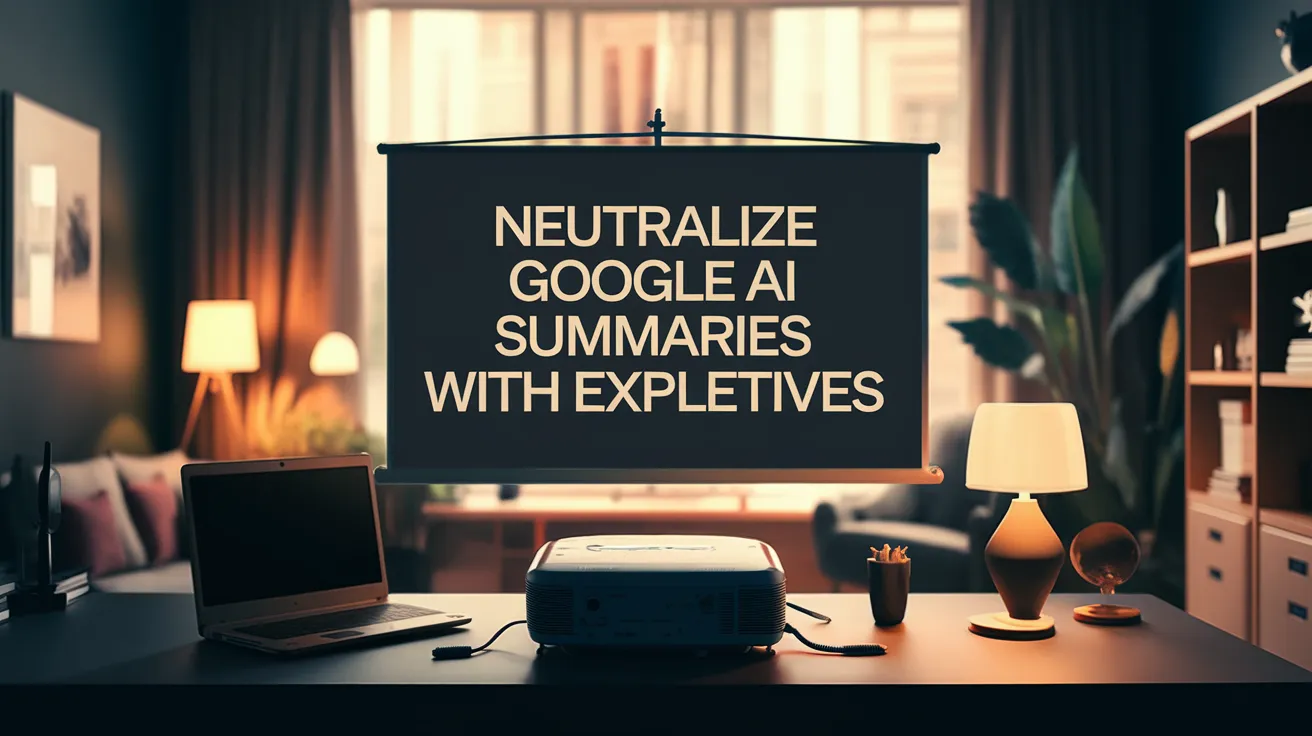Neutralize Google AI Summaries with Expletives

Tired of Google’s AI-driven search results leading to poorly sourced information? There is a curious workaround that has recently come to light. According to recent observations, using expletives in your Google search queries prevents the display of AI Overviews—AI-generated summaries that often clutter search result pages.
Expletives as a Tool for Clarity
For example, if someone searches, “How large is the student body at Yale University?” the search results will typically include a significant AI-generated summary at the top. However, altering the query to include explicit language, like, “How large is the fucking student body at Yale University?” leads to a results page devoid of AI-generated content, revealing only the standard list of blue link results. This quirk offers users a straightforward method to regain control over their search experience.
Historical Context of Manipulating AI Results
This isn’t the first occasion where internet users have uncovered methods to disable AI summaries from Google. Previous techniques were often convoluted, such as using intricate strings of characters in the URL. The simplicity of incorporating an expletive not only streamlines the process but also introduces a touch of humor and catharsis for frustrated users.
User Preferences for Traditional Results
It raises a significant question about user preferences—if individuals are actively seeking methods to turn off AI summaries, does this indicate a broader desire to eliminate such features? Despite the inherent imperfections in Google search results, AI summaries seem to amplify the ongoing issue of misinformation, presenting users with a seemingly authoritative response that may lead them astray.
The AI Summary Dilemma
Comparatively, the introduction of AI responses in platforms like Siri can exacerbate this dilemma. Rather than directing users to further resources when uncertain, Siri now leans on AI-generated answers, which have occasionally resulted in the dissemination of incorrect or nonsensical information. This trend illustrates how users are often compelled to navigate through poorly crafted AI responses in various platforms including Google, X, and Instagram, in a tech environment saturated with AI features.
The Future of Google AI Overviews
Initially, Google’s venture into AI Overviews went viral partly due to the numerous outrageous outputs, like suggesting humorous advice such as using glue on pizzas to prevent cheese from sliding. Sources indicate that these inaccuracies might stem from data pulled from dubious origins, like comments on Reddit. This illustrates a fundamental challenge in AI’s comprehension of nuanced language, including sarcasm and satire.
Ongoing Litigation Among Tech Firms
Despite Google’s reassurances that AI Overviews do not diminish traffic to originating websites, media companies have voiced concerns, igniting legal battles regarding the ingestion of their content by other technology firms. Meanwhile, Google may soon address this loophole, but for the time being, users have an expedient method to navigate away from AI interference by simply asking Google for the links.